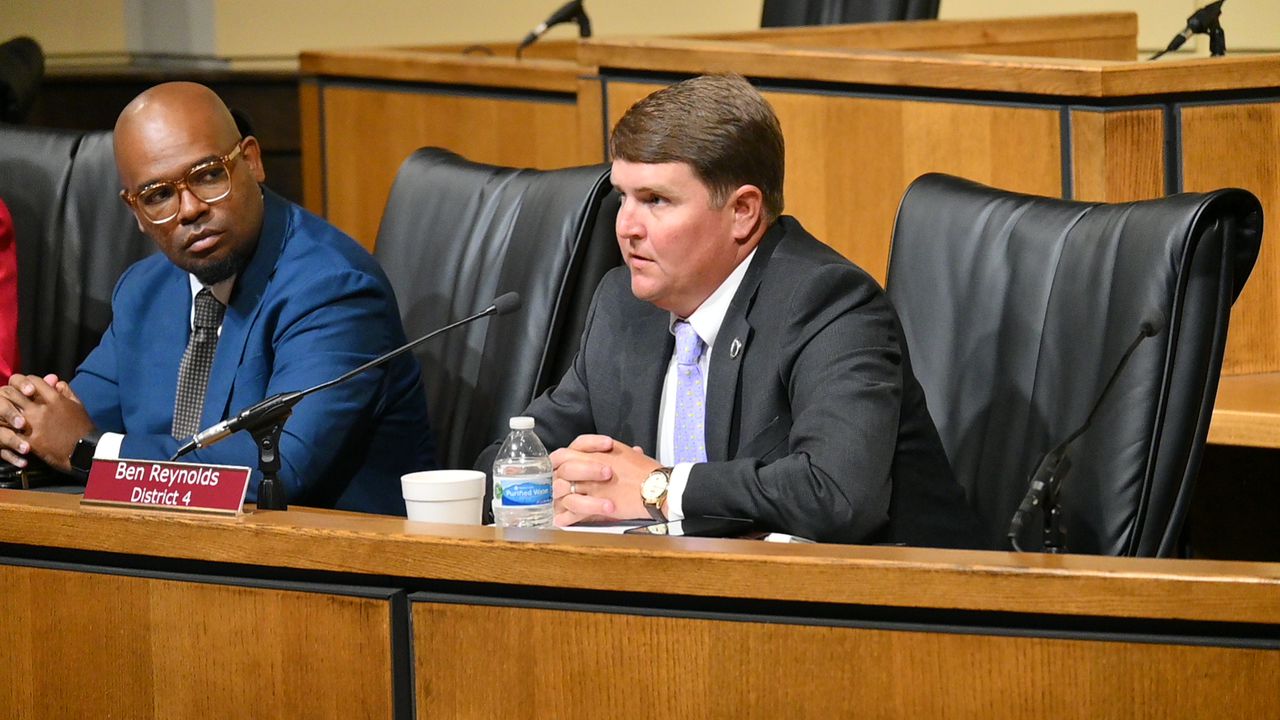$9 million cost overrun on parking garage raises questions over Mobile, U.S. Army Corps of Engineers project
Mobile city council members are likely to raise concerns Tuesday over a request to spend $9 million in taxpayers’ money to support a 31% cost overrun on a parking garage adjacent to the Mobile Civic Center.
The garage is a city project and is expected to support a future Civic Center redevelopment that could be among the most expensive city projects undertaken in at least a decade.
But the more immediate role for the 1,000-space parking garage is to support a new U.S. Army Corps of Engineers office building that is under construction within the 22-acre Civic Center site. Approximately 800 USACE workers will relocate into the office once its opened in either late 2024 or early 2025.
According to city spokesman Jason Johnson, the USACE is reserving 151 of those spaces – 16 that will be reserved 24/7 and 135 that are reserved during the weekdays.
“I am disappointed to see this price at $9 million over what the engineers estimated the costs to be,” Councilman Ben Reynolds said. “We are paying a significant amount of money for the design to come up with these sort of (price estimates). I know they can’t be spot-on, as they are estimates. But for us go through bid prices, and just learn that it’s $9 million more from an increased costs in concrete … I want to know why it is so much higher?”
Reynolds said the city should consider modifying the contract or rebidding it.
Mobile City Councilman Ben Reynolds speaks during the Mobile City Council meeting on Tuesday, May 23, 2023, at Government Plaza in Mobile, Ala. Seated next to him is Mobile City Councilman Cory Penn. (John Sharp/[email protected]).
Candace Cooksey, a spokeswoman for the City of Mobile, said the timing is crucial in approving it.
“Because the rising costs of materials doesn’t appear to be slowing down, it’s imperative that we move forward as quickly as possible,” she said. “Delaying will only increase costs.”
She said that increases in material costs and inflation are impacting all city projects, calling it a situation not unique. She said that a 20-30% increase on a $28 million project “will be larger than a 20-30% increase on a $300,000 project,” adding “that’s what we are seeing across the board.”
The city, she said, is still determining a firm cost estimate for the complete redevelopment of the Civic Center. The council has already authorized about $3 million for design work, which will factor in the current costs of materials and give the council a better idea of what a complete redevelopment of that structure might cost.
The design contract covers about 25-30% of the overall design work for the facility. The money, the city has said, will be enough to give them information for an updated Civic Center construction cost estimate, which the city needs before it moves forward with a full refurbishment of the aging 59-year-old sports and entertainment venue.
The Civic Center Arena, a discolored building south of downtown, has been described as a visual “wart” in Mobile but continues to be used on a regular basis especially during the city’s Mardi Gras season.
Cooksey said the city is working to identify multiple partners “across the public and private sectors that could defray” the overall costs to the Civic Center project.
“Redeveloping the Mobile Civic Center will be one of the most expensive projects the city has taken on in years, and we do not intend to tackle it on our own,” she said.
For the parking deck project, it appears unlikely that the city will get additional support from anyone else, including the USACE, though some council members would like to keep multiple options on the table for consideration.
“I think everything is open at this point,” said Councilman Cory Penn. “No one was expecting this to come back at this amount of $9 million higher (than initial estimates). Any discussion is open.”
Christopher Carranza, spokesman with the USACE’s Mobile division, said the parking facility is for the City of Mobile and their activities. He said the Mobile district “will be renting spaces from the city of Mobile,” and that it was the city’s decision to build the parking garage as “part of a master plan developed by the city for the Civic Center.”
Reynolds said the parking garage, along with the land lease agreement that is allowing the USACE to build their office on the 22-acre Civic Center property, has been part of an arrangement that has amounted to “an awful lot of money” from taxpayers in “direct support of the Corps of Engineers.”
The office building will be owned by FD Stonewater, the Arlington, Va.-based developers, and leased by the USACE.
The least of the land by the city to FD Stonewater is for $1 per year for the first 10 years, $100,000 per year for the next 10 years and at a market rate after year 20.
Reynolds, who was the sole council member to vote against the deal, said it amounts to “crumbs” for the USACE. The agreement also requires the city to have enough parking on the Civic Center property for the USACE by the time the new office building is open.
A complete overhaul to the Civic Center, estimated to cost more than $200 million, isn’t expected to be finished until at least early 2027, while the the USACE project will be finished much sooner.
Cooksey said the USACE’s leased parking spaces will result in extra revenues for the city that will help offset the Civic Center redevelopment costs. In addition, USACE “is cost-sharing the relocation of utilities on the property, saving the city money,” she said.
